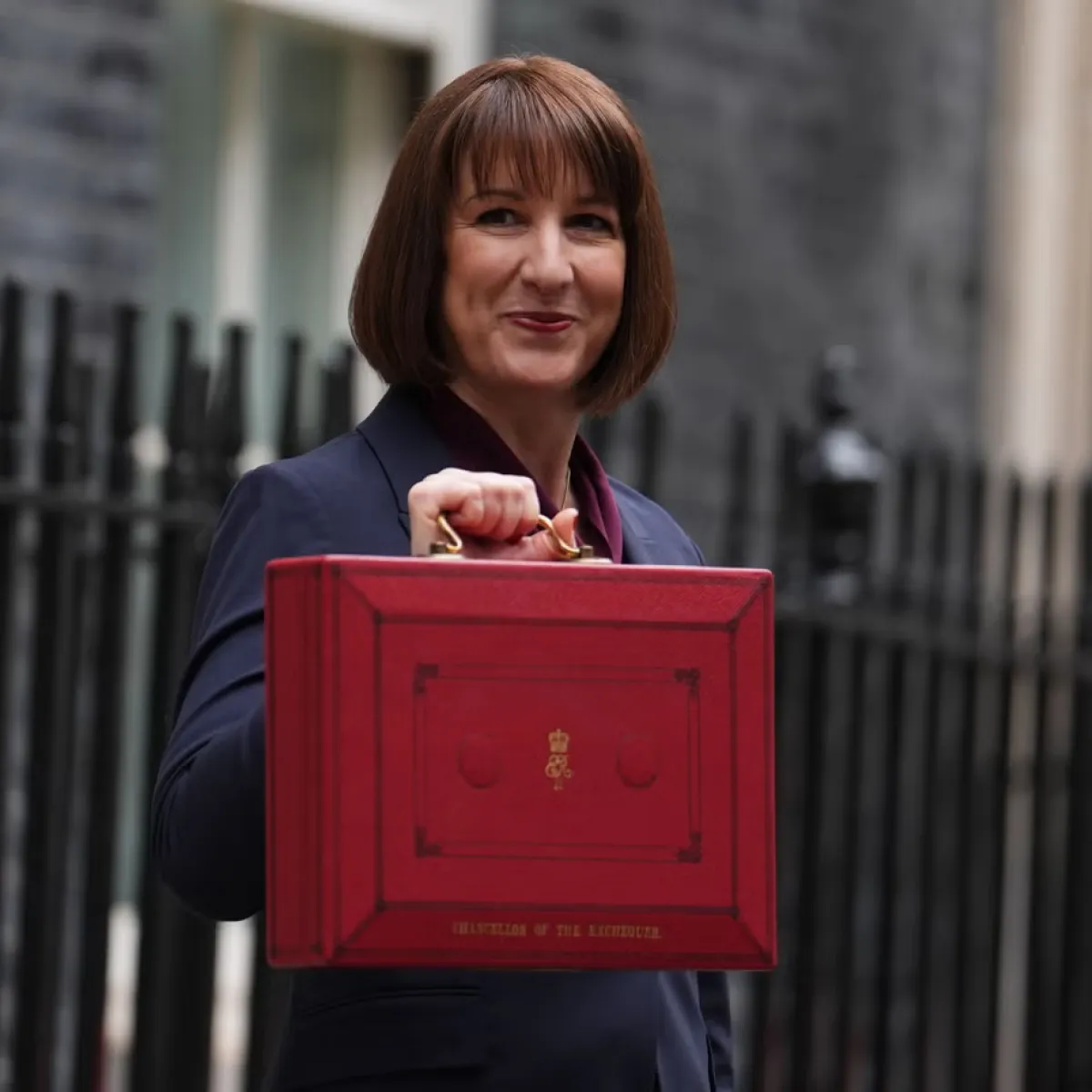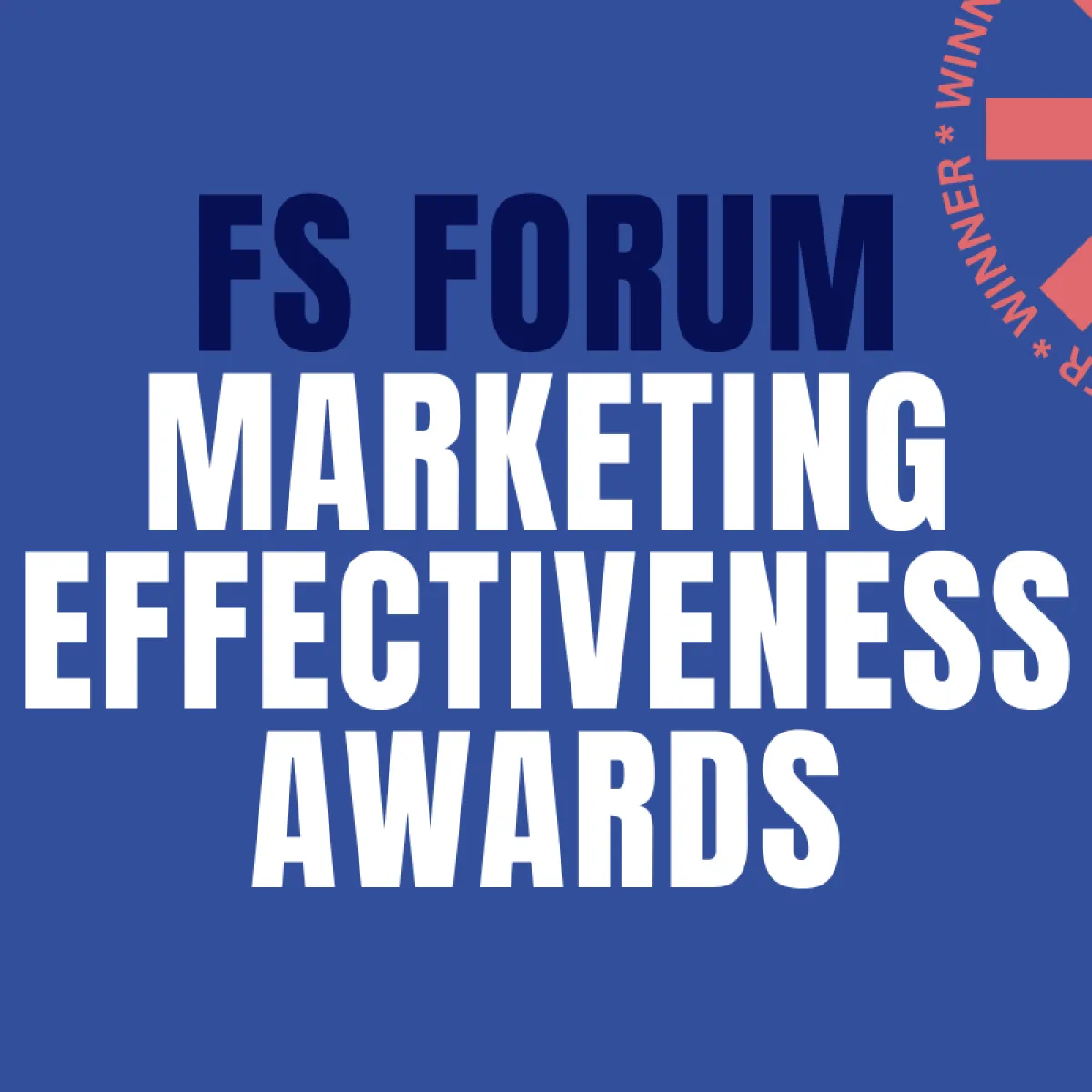This website uses cookies. Learn more
(mis)Conduct, Money & Reputation: Join asset management experts David Masters (Lansons) and Neil Robson (Katten) as they dissect the top stories and misconduct cases across the industry, impacting reputation, brand trust and integrity.
"I think for a lot of firms, they see the power and they see the potential to leverage the highly curated audience of these finfluencers. So, if you’re looking to target certain demographics, many influencers who have their own platforms, have already laid the groundwork."

Episode Background
E07: Kardashian, Finfluencers & Crypto
As social media and generational shifts reshape the world of investment and financial advice, asset managers are facing a new and growing challenge: finfluencers. These social media personalities represent both opportunity and risk. Active on platforms like Instagram and TikTok, they can make finance more accessible, but also present reputational challenges when they promote financial products without following regulations. In this episode, co-hosts David Masters and Neil Robson together with guest Emily Allen in the US, explore the impact of finfluencers on the asset management sector, focusing on the UK and US regulatory risks and misconduct issues they can trigger.
With cases like Kim Kardashian’s $1.26 million fine for promoting EthereumMax, the trio unpack the risks posed by finfluencers and discuss what asset managers can learn to protect their brands. Tune in for insights on safeguarding reputation in an age where financial advice is just a click away.
This episode provides a crucial guide for asset managers and financial services professionals in preparing for, mitigating against, and avoiding reputational fallout required when things go wrong.
Episode Transcript
David Masters: Hello and welcome to the episode. This is our seventh episode in a new series for those working in financial services, particularly in and around asset and wealth management, where we seek to navigate a path through some of the more complex issues where regulation and reputation overlap. My name is David Masters, Director and Asset Management lead at Reputation Consultancy, Lansons Team Farner.
Neil Robson: And I'm Neil Robson, Regulatory Compliance Partner at law firm, Katten.
David Masters: And today we are joined by my colleague from Lansons New York office, Emily Allen. Welcome, Emily.
Emily Allen: Hello. Thank you for having me David and Neil.
David Masters: Pleasure to have you here, Emily. So, to get us started, we're going to be diving into the emerging issue of finfluencers and also the particular threats and opportunities presented by social media and how different regulators around the world deal with this issue.
We'll focus on the regulatory and reputational challenges businesses face. It's a timely topic, as the use of influencers by financial services companies is growing. As financial services firms and investment businesses seek to directly engage with their client audiences through social and digital channels.
So first up, what is a Finfluencer?
Well, they’re a specific type of influencer. The word itself is a portmanteau word coming from finance and influencer. And influencers offer guidance for people on how to manage and maximize one's personal finances, including investments. They also talk about things like cryptocurrency and property management quite a lot. So, they are gaining credibility as a trusted source of information and advice, and they attract many thousands and, in some case, millions of loyal fans and followers.
But why all the fuss?
Well, the digitalisation of financial services is well underway, and they are seen as having very good direct access to younger generations that investment businesses and wealth managers need to gain traction with. Particularly given the declining loyalty to traditional financial institutions post GFC.
Studies have found that over 60% of US investors under 35 use social media as a source of investment information, and I think that comes from FINRA. Finfluencers provide an easy way for providers to tap into the uptick in popularity of short form video on social channels.
And all this against the backdrop of a challenging economic context.
Finfluencers are particularly prominent on Instagram, TikTok and YouTube. Their presence on X has waned, but that's not surprising because a lot of people are no longer using that platform. Many finfluencers have their own websites and run their own blogs, and many of them, an increasing number roughly a third, maybe more, have their own podcasts, which often feature other finfluencers as guests.
With that in mind, Neil, perhaps you could give us a flavour of some recent misconduct and related issues involving finfluencers. I think we're all keen to hear about the Kardashian connection.
Neil Robson: Yes. Thank you, David.
Well, to kind of set the scene as we go through this discussion a bit further. The concepts, the phenomenon of finfluencers is not restricted to the US or the UK. It's an absolutely global phenomenon. There has been scandals in just about every major development services economy. Anywhere from India, where the newly minted middle classes are looking in their millions of people that they trust on social media through, of course, to the US, and as you say, Kim Kardashian.
And every other economy you can think of, there's a social media platform where somebody can connect to meet somebody they value and trust, and they will listen to their opinion. So just to set the scene a little bit further, it was actually May last year, the Financial Times was reporting that there'd been an enormous, documented jump in self-directed investing, mainly because I think of the pandemic, people stuck at home and focusing on their own research rather than accessing traditional third party financial advisors, but also because of the massive increase in social media.
The FCA's perspective is that this huge growth in retail accounts is really a major point that there needs to be better education of the masses. Now, if we jump to your Kardashian case that you've referenced, I think a lot of people are going to be quite familiar with, Miss Kardashian, formerly Mrs. Kardashian West. She found herself on the wrong side of an investigation by the Securities and Exchange Commission in the States.
So, a few years back, she'd been promoting the crypto token Ethereum Max on her Instagram account. Now, she violated SEC rules because she failed to tell any of her Instagram followers that she'd been paid a quarter of $1 million for putting that post up on her page. The result for her was that she ended up with a $1.26 million settlement with the SEC.
So just goes to show that if you get the rules wrong in the States, you have to say if it's a paid financial advertisement, she got that wrong and she ended it with a massive fine. Equally, in the States, there's a lot of scandals around FTX, the high-profile crypto platform that collapsed, of course.
And here it was, American footballer Tom Brady and American basketball star Stephen Curry. The two of them ended up being sued, for promoting the exchange in an inappropriate way. Again, it was they were being paid to do so and they didn't disclose properly. So, in those scenarios, quite obviously, the individuals in question, we're not financial experts.
But they were putting out information that said, ‘This looks really good to me. I think you guys, as my followers, should look into this’. You know, it was a promotion. So here we're looking at okay, these are inappropriate promotions. And in some ways, that's actually the focus of regulatory investigations. So, if we stay in the US a minute before I jump around the rest of the world a little bit, as well as the SEC in the States, there's been a huge amount of enforcement, smaller in scale, admittedly, but a lot of enforcement by Finra, which is the broker dealer, regulator in the US.
And they did a targeted exam sweep, as they call it, an examination of a number of firms, on a particular focused, narrow topic. And they've had done enforcement action and fined considerable number of firms for using finfluencers, and again, failing to disclose that these were paid for financial promotions, paid for advertisements. And there's some great snippets of information in those, judgments and the publications that have come out quite clearly.
they've been saying it's a firm or representative pays for a publication or a production or distribution of a communication of any form, then it must be identified as an advertisement. And that's where they keep hammering broker dealers who got it wrong. And that's been running now for three years.
Usually, the fundamental point here that these finfluencers are being paid to say things they don't understand. 99% of cases, as far as I can see from my analysis, they're not qualified experts with any real knowledge of financial services. They should not behold themselves as doing any financial advisory activity. And case in point here.
So, in May this year, the Financial Conduct Authority here in the UK brought charges against nine individuals, UK based people who were actively involved in an unauthorised foreign exchange trading scheme, which they promoted very, very widely on Instagram.
But these reality TV celebrities in parentheses, they had a combined Instagram following of 4.5 million people, mostly UK based, mostly in their 20s and 30s. So, the guy who's, set up this scheme was, a gentleman called Emmanuel Nwanze, and he was running an unauthorised investment scheme, according to the FCA, whose claim against him and the others, and he was encouraging the reality TV stars, again in parentheses, to make unauthorised financial promotions.
And in doing so, they were putting out on Instagram that they should effectively enter into contracts for differences in relation to FX transactions. That is not permitted, number one, to retail investors in the UK. But equally, their Instagram posts became financial promotions. They became finance adverts for Mr. Nwanze’s scheme at that time, and that ran for three years effectively from May 2018, all the way through to April 2021.
The FCA is claiming, well, every one of these people, all nine defendants were issuing unauthorised financial promotions. Interestingly, the case is very much ongoing. So, it's live as we speak now, at the end of September 2024. Everybody except Ava Serpico have pleaded not guilty. She hasn't yet actually put her plea in.
She's got a hearing set next week. And the trials, interestingly, will not be until 2027 because the UK court service is so under water at the moment. So, we've got two and a half years to go before there's any sentencing or any judgment against them. If they are convicted, though, each could face up to two years in prison and or significant fines.
This is something which is a relatively new phenomenon. And if we think of traditional investment businesses, it's the antithesis of how they normally operate. But it is becoming a much bigger, important part of how they reach out to that next generation of investors and existing generation of investors.
I mean, there's a lot of research now that says that even the boomer generation are much more comfortable with, digital communications. Emily, you're out in the field in New York and in the US. What is the sort of things that you're seeing?
What's your view overall of where things are at the moment?
Emily Allen: Well, what I think is interesting here is the accessibility factor.
And it's really a fundamental change into the democratisation of investment information and financial advice. I think that platforms like, social media and TikTok and YouTube have really lowered the barrier to entry, I think both for the creators producing the content and for audiences consuming it. And that's really a paradigm shift, I think, in the way that financial knowledge is disseminated and internalised and consumed.
And I think, you know, especially in the US, we're really on the cusp of a massive generational wealth transfer. So, I think more than 80 trillion is expected to move from the baby boomer’s generation down to younger generations, millennials and Gen Z alike. And I think the boomer generation also holds a significant portion of US equity.
So, the implications are kind of multi-fold there. So, they're really inheriting not just wealth, and capital, but sort of a different market dynamic as well. So, I think we also have to acknowledge that the investment behaviours of the younger generations are different. They're interested in, digital assets and alternative investments, much more so than equities and bonds.
Which again, is another shift and I think also speaks a bit to a higher risk tolerance in many ways, and probably likelihood to value the cutting edge over what's been a proven playbook in terms of portfolio construction and advice. So, they're more susceptible to be, ‘finfluenced’, if you will. But another important piece of that is that, while platforms like YouTube have laid the groundwork, TikTok, in my estimation, is really a game changer in the sense that it’s algorithm driven, it's content discovery, and it's the concept of going viral and the almost boundless organic reach is really to a whole new level.
And for the purposes of our discussion here, I looked up, how many videos on TikTok currently have the hashtag investing? And it's over 2.5 million videos. So clearly there is just a mass of content, I think for younger investors who are inheriting this money and have a different, sensibility when it comes to what they're looking for in terms of assets.
I think the speed, the accessibility and, probably, quite frankly, the entertainment value of the content is, maybe outweighing the traditional methods of obtaining advice. I think it's really interesting, there's a massive opportunity for firms to follow the money and to reach the new generation where they are looking and where their eyeballs are.
But as we've well documented, the many risks as well. So, I think it's a big challenge. And I think the rate of evolution of these platforms as well is something interesting to contend with.
David Masters: When we think of financial scams and this is probably a bit of a UK perspective, we tend to think of things which are targeting vulnerable people, often older people, often pensioners. But obviously the rise of social media, and these digital platforms is creating a whole new genre of scams. And you know, Neil's already mentioned FTX, now whether that was set out to be an intentional scam or not, I don't really know.
Obviously, there is this huge transfer of money going on. So, there are clearly people out there looking to exploit that, some through fair means by being an influencer and providing what they believe is good and valuable advice, but also other people who may be whose views slightly more amoral.
How are companies in the US, where obviously there is so much financially at stake, are you beginning to see any trends emerge where you're beginning to see a greater degree of caution or companies being more circumspect about how they operate with influencers?
Or is it still very much the Wild West and it's really all about discovery, test and learn?
Emily Allen: I think from my perspective, I think it's a lot of, test and learn. And going back to your point about, the scam, I came across an interesting stat from the from the FTC, in the US, nearly almost 3 billion in losses from related scams.
And primarily most of those were from people aged 20 to 29. So, I think there's also a bit of an interesting, and maybe incorrect assumption that younger generations have more of that media or social media literacy, to know when they're being targeted with good advice or bad advice. And I don't know that is maybe not a correct assumption at this stage.
But I think for a lot of firms, they see the power and they see the potential to leverage the highly curated audience in a lot of ways of these finfluencers. So, if you’re looking to target certain demographics, many influencers who have their own platforms, have already laid the groundwork in terms of bringing together this highly curated, audience of specific demographics.
So, I think they see the real value proposition of it, I think a lot of firms are quite scared off by all of the headlines and all of the risks that we've seen. And I think a lot of them don't quite know how to put in place, proper compliance and wrap their arms around the risks.
It’s a little bit of everything. I think the opportunity is identified and it's there. But how we actually put into practice guardrails is another question.
David Masters: Neil bringing you back in. If you're a financial services company and you're thinking of engaging with a finfluencer and utilising a finfluencer for your marketing.
What are the key regulatory requirements you need to check off?
Neil Robson: Okay, well let's focus on this from a UK perspective. So, starting point sort of building block number one. Right at the bottom of the structure is section 21 of the Financial Services and Markets Act, financial promotion rule. I know it's a bit techy to go into the actual legislation, but bottom line is, that a person must not, in the course of business, communicate the invitation or an inducement to engage in investment activity unless the person issuing the communication is themselves FCA licensed or an appropriate FCA licensed firm has approved the communication.
Now, interestingly, this year the FCA has changed that rule and they've now required that, if you're an FCA licensed firm, you need an extra license to approve third party communications, in financial promotions. They've really restricted who can do it. But that's your starting point because the next point is that there's a base principle that all such financial communications must be fair, clear, and not misleading.
Now, one little Instagram post. It's going to be hard to be fair, clear and not misleading all in one spot. Make it clear that it's a financial promotion and comply with all the rules. So, this is where influence is going to get tripped up. And that's why the FCA is being so aggressive in pursuing, the UK's reality TV stars cases against them.
Those nine influencers I was talking about earlier. Now, what's interesting, in fact, is David, look back through the mists of time back to 2015. Because Lansons, now Lansons team Farner that's when you and I first met, you invited me to speak at one of your Asset Management forums because there was some new guidance from the FCA, at that point in time on how to do some promotions.
If you were an asset manager or another financial services firm, how to do it on social media. And back then we were talking about Facebook, YouTube, Pinterest, LinkedIn and of course Twitter as it was at that time. Now, the FCA's enhanced those rules just in the last 12 months because the FCA recognises that, how do you do a financial promotion when you've only got so many characters on one screen?
Or indeed it might just be some sort of little image with a snapshot of text underneath. So, what they've really done is, again, focus in and in fact, they've flagged at the start of their new guidance, that it's technology neutral. It doesn't matter how the information is being disseminated. You still must meet the standards.
So, the FCA’s new guidance is much enhanced. Even tackles the point that finfluencers it's being used must adhere to these standards. So, I'll read you a good little excerpt. ‘Firms working with affiliate marketers, such as influencers, should take proactive responsibility for how their affiliates communicates and promotions. Influencers are subject to regulation without the approval of an authorised person may be committing a criminal offense’.
And in fact, what they do is they go through and explain, how they would expect risk warnings to be shown, and interestingly, what the FCA has also done is say, ‘hold on a minute - if you're a finfluencer, you need to make sure you're adhering to the Advertising Standard Authority's guidance as well, and the expectation that an advertisement is labelled as such’.
So, they're making clear now that there's all sorts of ways that they're going to enforce against somebody who's violated the rules. It's quite interesting to see that the FCA is trying to get themselves bang up to date, trying to become technology neutral. But the message remains the same - fair, clear, not misleading.
That's the absolute standard. And it's got to be clearly labelled, and it's got to be appropriate for the audience in question. Most of the time, if you're a reality TV star, you probably can't do that in all reality.
David Masters: Really important that the marketing people really understand the sort of regulatory requirements, because it's one of those things that's, that's there to trip you up. And it is quite an interesting challenge for the asset management industry, I think, because for many years asset managers have wanted to remain in complete control of their brand, in complete control of their messaging.
But by entering the into the realm of finfluencers, you're effectively, delegating the responsibility for your brand and the messaging around your brand to other people. I mean, Emily, in terms of what you are doing with your clients, is this something that you're seeing?
Emily Allen: Yeah, I think there's something interesting where we have really high standards for any firm that we would work with and be a consultancy for.
We would ensure that all their spokespeople are very well briefed, very well prepared, understand what they can and cannot say, are prepared with material and tight messaging guidelines and, go forth into the world. We call it singing from the same hymn sheet or being able to tell the same story well.
And with all the proper vetting and I think there is something really interesting where the guardrails are not necessarily the same if you are engaging with finfluencers because you're essentially handing over the reins for them to be a spokesperson for your company, and they're not necessarily put to the same, preparation or standards in some way.
So, part of what we're starting to guide clients on is having media training style sessions where if you were to engage with any influencers, it really needs to be that they are put through the same rigorous process as anyone who is an assigned spokesperson for the firm.
David Masters: Thanks very much, Emily. I think it's an important part to note.
And it sort of brings us to this whole idea of what happens if something goes wrong? What do you do about it?
Well, that if we step back and think about reputation. Reputation is driven primarily by behavioural issues. And the behavioural issue here is that you really haven't done the right level of preparatory work.
You haven't really vetted your influencers properly, and you maybe haven't thought the whole thing through as well as you might. But having got to that stage, what can you do about it? I think and that's an interesting challenge because it sets up a whole series of question marks about why you've done it and what you're doing.
Clearly if somebody is out there operating in a way which is harmful to your brand, the first thing you really need to do is, you need to close that down. You need to make sure that, the audience for that is aware, that this is not correct.
You really need to issue some form of apology. But really, it's as with all sorts of issues and reputation management, what you say is really driven by what you need to do. Are people likely to have lost out financially because of what this person is doing? So might you face regulatory fines, but also, you know, might you also need to be compensating people.
So, there are a whole series of questions which come to mind, in terms of how you deal with these sorts of issues. Neil, what's the regulator's take, because a lot of this is still, at quite an early stage and the regulation is there, but necessarily not always the actions have been taken.
But I guess if we think about financial promotions rules, what historically have been the sort of responses to these failings by the regulator?
Neil Robson: Well, it's not just the FCA with the financial promotion rules here in the UK. And I said earlier on in the podcast, the SEC and Finra are in the US are very unhappy with people being set free on social media and people being paid by financial services firms to go and illicitly promote financial products, which they shouldn't be. Where it's not clear it's an advertisement, where it's not clear that this person has been paid to say good things about that particular product.
So bottom line is, if you get it wrong, if you are a regulated financial services institution and you have engaged somebody, you've paid a finfluencer to say something good on their Instagram or on wherever, whichever platform, you could be significantly at risk of very large fines and that finfluencer, they need to also understand they're at risk potentially of two years in jail and also significant fines.
David Masters: I think that's important what we're talking about here, because there is an upside to the use of finfluencers. And this is an important way of getting access to the next generation of investors and savers. And for that next generation of investors and savers, it's a way of getting access to the information that you need to know. Because we know that there is a lack of understanding, a lack of education around these financial topics.
There are a lot of exciting, innovative things happening. But, you know, TikTok and X are already becoming quite reputationally interesting, shall we say. I think what we need to say is that finfluencers don’t come without its risks, but it's a good opportunity for a lot of providers out there to reach a new audience.
So that's everything for me. Thank you very much. My name is David Masters. And, good bye from my colleagues as well.
**
Disclaimer: The content in this podcast is for informational purposes only. It does not constitute legal advice and is not intended to establish an attorney-client relationship, nor is it intended to suggest standards of care applicable to attorneys in any given situation. This podcast is considered attorney advertising. Prior results do not guarantee a similar outcome. Any views, opinions or comments made by external guest speakers - are not to be attributed to Katten Muchin Rosenman LLP and/or Katten Muchin Rosenman UK LLP or their individual attorneys/lawyers. All rights reserved.
Stay in the loop with our experts




New Business: to find out how we can help you, contact our dedicated new businesss team consultancy@lansons.com
Careers: we’d love to hear from you, please visit our careers hub











